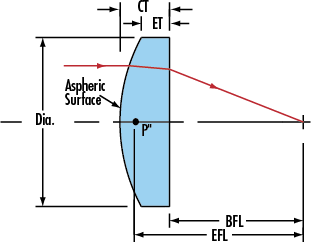According to foreign media reports, the staff of the US Department of Energy (DOE) Argonne National Laboratory has developed a technology that can reduce the cost of hydrogenation at a hydrogen station and increase the efficiency of hydrogenation, and has commercialized the technology, which has won great praise . It is expected that this technology can reduce the cost of hydrogen fuel paid by fuel cell vehicle customers.
The Federal Laboratory Consortium (FLC) awarded the Excellence in Technology Transfer award to the hydrogenation technology developed by Argonne National Laboratory researchers Amgad Elgowainy and Krishna Reddi. Argonne Lab also transferred the technology to PDC Machines, a global compressor manufacturer, through mechanisms such as Cooperative Research and Development Agreement and Technology Licensing Agreement.
The high cost of hydrogen refueling stations hinders the popularity of hydrogen fuel
The technology developed by researchers at Argonne Labs can solve an obstacle to the widespread adoption of hydrogen fuel, namely the high cost of deploying and operating hydrogen refueling stations. Elgowainy said: "Consumers pay hydrogen refueling fees at hydrogen refueling stations, which basically account for half of the cost of hydrogen refueling stations themselves, and the other half of the cost is the cost of compressors."
Elgowainy and colleagues studied ways to reduce the cost of hydrogen refueling stations, mainly for hydrogen compressors, which is a particularly expensive device. The researchers found that although the cost of each compressor was $ 500,000 or more, the operating efficiency was very low. In order to meet the demand for hydrogenation during peak periods, the size of the compressor is usually large; however, during off-peak periods, most of the compressors are in an idle state, which is much lower than the full-load operation state.
Increase pressure to reduce costs
The research team's solution is to develop "pressure consolidation" technology (pressure consolidation), by providing high-pressure hydrogen to the compressor, to enhance the compressor's hydrogenation capacity. The team ’s solution took into account the basic working principle of the compressor and the hourly hydrogenation requirements of a typical hydrogenation station.
Traditionally, hydrogen refueling stations use hydrogen to supply energy storage systems (on-site fixed energy storage systems or located on pipeline trailers that transport hydrogen) to store the hydrogen that is ultimately supplied to the compressor. When the vehicle reaches the hydrogen refueling station, the hydrogen gas will leave the energy storage system, enter the compressor for pressurization, and then be sent to the filling gun, and finally enter the car.
During the day, as more and more hydrogen is added to the vehicle, the pressure of the hydrogen storage system will drop. As the pressure drops, the density of hydrogen entering the compressor will also decrease, thereby reducing the compressor's hydrogen supply capacity.
The team's technology can increase the pressure of hydrogen stored in hydrogen storage tanks when hydrogen fuel demand is low. When the demand for hydrogen fuel rises, the compressor will receive a stream of high-pressure hydrogen, which keeps the compressor's hydrogen supply capacity at a high level and enhances the hydrogen supply capacity of the hydrogen refueling station. Hydrogen speed.
The patented pressurization technology can save hydrogen station operators 30% of equipment costs, minimize the idle time of the compressor, and also increase the fuel delivery efficiency of pipeline trailers by up to 20%. (Author: Yuqiu Yun)
Optical Crystals Aspherical Lens
China Star Optics has strong and comprehensive technical capability, integrate the design and manufacture as a whole.Imported the global advanced aspherical equipment and instruments,manufactured various aspherical products,including infrared material Zinc Selenide (ZnSe),Germanium (Ge),Silicon (Si),Zinc Sulfide (ZnS) etc. Aspheric lens has already application in various high technology project and products.

Aspheric Lens
Specification of our Aspherical Lens as follow:
Material:BK7,B270 glass,PYREX,ZF13 or other optical infrared material Zinc Selenide (ZnSe),Germanium (Ge),Silicon (Si),Zinc Sulfide (ZnS) etc.
Size:10mm-200mm
Fringes:lambda/2
Center Thickness:15nm-25nm
Dispersion round:0.03mm-0.2mm
Centration:3 arc min
Surface Quality:60-40 Scratch/Dig
Clear Aperture:90%
Coating:Available upon Request
Optical Crystals Aspherical Lens,Optical Aspheric Lens,Ir Glass Aspheric Lens,Infrared Glass Aspherics Lens
China Star Optics Technology Co.,Ltd. , https://www.csoptlens.com
